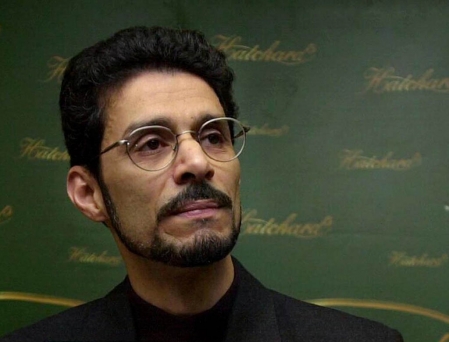Rohinton Mistry is no stranger to success. He is the only author whose all books have been nominated for this year’s Man Booker International Prize worth close to $100,000.
The 59-year old Canadian Indian author was raised in India’s Mumbai where he graduated from one of India’s oldest universities, the Mumbai University, before moving to Canada in 1975.
Interestingly, his debut novel Such A Long Journey, was banned by his alma mater – Mumbai University, in 2010.
 The prestigious university dropped the fiction, which on on the 1991 Booker shortlist, from its English literature syllabus after a student branch of Shiv Sena (a local Hindu fundamentalist political group) burned the copies of the novel for “obscene and vulgar language” and for allegedly derogatory remarks about the group’s leader Bal Thackeray. The novel had earlier won the Commonwealth Writers Prize and the Governor General’s Award.
The prestigious university dropped the fiction, which on on the 1991 Booker shortlist, from its English literature syllabus after a student branch of Shiv Sena (a local Hindu fundamentalist political group) burned the copies of the novel for “obscene and vulgar language” and for allegedly derogatory remarks about the group’s leader Bal Thackeray. The novel had earlier won the Commonwealth Writers Prize and the Governor General’s Award.
His second novel, A Fine Balance, published in 1996, also won the Commonwealth Writers Prize, the Giller Prize, the Los Angeles Times Book Prize and the Winifred Holtby Memorial Prize. It was also nominated for Oprah’s Book Club Best Novel in 2001.
A year later, his third fiction, Family Matters (2002) was shortlisted for the Man Booker Prize, the James Tait Black Memorial Prize and the International IMPAC Dublin Literary Award. It won the Canadian Authors’ Association Award for Fiction and the Timothy Findley Award (Writers’ Trust of Canada).
The other 12 authors from eight countries are: Juan Goytisolo (Spain), James Kelman (UK), Amin Maalouf (Lebanon), David Malouf (Australia), Dacia Maraini (Italy), Philip Pullman (UK), Marilynne Robinson (US), Philip Roth (US) and Anne Tyler(US).
Set up in 2005, the Man Booker International prize is awarded every two years to a living author, is worth £60,000, the winner is chosen based on a writer’s body of work rather than a single novel.
This makes the task of choosing a winner more difficult. “The task allocated to us has been to size up the giants and arrange them in order of merit,” the chair of the judging panel in the first year, John Carey, observed.
“It was hard to know where to start,” writes Rick Gekoski, one of the 2011 judges, in The Guardian. “Not entirely undaunted, we have read and read and read some more, animated by the awful thought that we could be missing someone of the highest stature.”
Gekoski describes Mistry’s ‘A Fine Balance’ a masterpiece and says: “Mistry has a great eye and a huge heart, and if the world he describes is often cruel and capricious, his characters have a remarkable capacity to survive.”
Mistry draws on his bi-cultural experience which is well-represented in his writings. “I had been fully formed by my own culture and my own family,” Mistry is quoted in Gekoski’s article in The Guardian. “At one time I thought this was the culture of the West but I now know it was something different. It was the Indian version of the West and it was mine.”
Writes Gekoski: “Perhaps this may partially account for his accessibility and appeal to a western audience, for his voice has the ring of the familiar about it.”
A Fine Balance is based on the backdrop of slums of Mumbai, which reminds one of the success of Slumdog Millionaire in the western world.

Leave a Reply